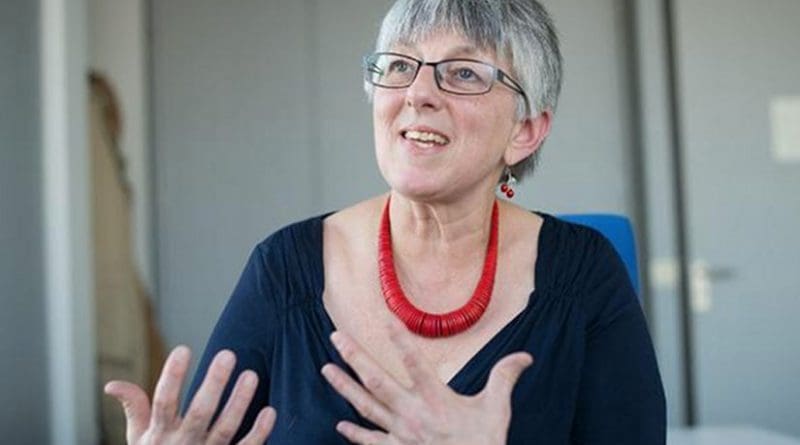Julie Ward: The Terrorist Attacks Were Result Of Exclusion, Not Multiculturalism – Interview
Recent events in Europe have brought the issues of marginalization and extremism to the forefront of public debate. On December 7, the European Parliament’s culture committee adopted a report on the role of intercultural dialogue, cultural diversity and education in promoting EU fundamental values.
Ahead of the vote, European Parliament News (EPN) spoke to report author Julie Ward, a UK member of the S&D: “We have one world and we have to find some way of being mutually respectful and tolerant of each other.”
EPN: There are many who blame multiculturalism for the terrorist attacks Europe has faced of late. How would you respond to this?
Julie Ward: These acts were perpetrated by a small minority of people, in many ways damaged people. The terrorist attacks were not the result of multiculturalism at all, but of exclusion. I represent the northwest of England including Manchester which is an extremely cohesive, inclusive society where people from many ethnic backgrounds work together on joint projects on a whole variety of issues. What I actually see is a really positive way of people from different backgrounds coming together and building one of the most successful, dynamic cities in the world.
EPN: So what measures can be taken to promote such integration and social cohesion at an EU level?
JW: Education is crucial. Children are not born to hate, so tackling things from an early age is vital. We are sometimes afraid of otherness and the best way to address this is to be in dialogue with people, to share different practices. In schools in Manchester, for example, children celebrate the Muslim holidays but also the Jewish, Christian and Hindu holidays. This sharing of different cultural practices is what makes a rich society.
The media has in a way legitimized racism. The narrative is that somebody else is always to blame; for the crisis, the lack of employment and so on. Also the conflation of migrants with refugees has resulted in a culture of fear. However, when people come together and talk honestly and share in each other’s culture, they learn that we’re all human beings with common aspirations and concerns. That’s the bottom line.
EPN: Would you then argue that migrants and refugees enrich the social fabric of their new communities?
JW: Even by looking at your own story, you can find very positive narratives on migration. I myself have ancestors who fled the persecution of the Huguenots in France. They brought wealth and skills and helped found the lace trade in Nottingham. Look also at the UK’s National Health Service which today relies on migrant labor. It’s also worth noting that people from developing countries or who have escaped terrible situations tend to be very entrepreneurial.
In terms of marginalization and intolerance, we must also use history as a means to teach us about how to live better in the future. That requires us to face up to some difficult truths about the very bloody history of Europe. We don’t want to see the rise of fascism again. Ultimately when you “other” people, you are beginning the steps towards genocide. So I would say: look at the past and don’t let that ever happen again.
Source: European Parliament News

